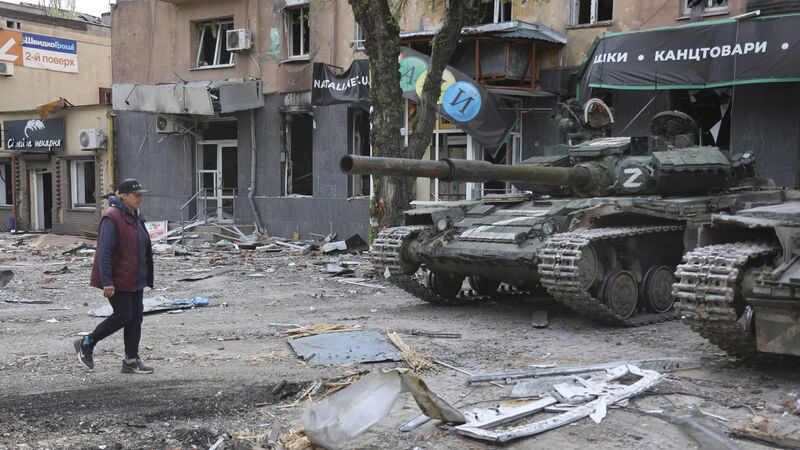Tougher sanctions needed on Russian oil and gas, says British ambassador to Ireland

A woman walks past tanks of Donetsk People's Republic militia in Mariupol, in territory under the government of the Donetsk People's Republic, eastern Ukraine, on Wednesday. Picture:AP Photo/Alexei Alexandrov)
Tougher sanctions on Russia are needed on oil and gas to stymie Vladamir Putin’s ability to wage war in Ukraine, the British Ambassador to Ireland has said.
Delivering a keynote address at University College Cork, Ambassador Paul Johnston also said international organisations and structures have failed Ukraine by failing to stand up to Russia.














